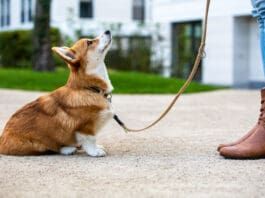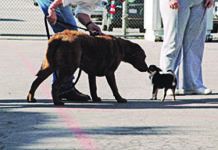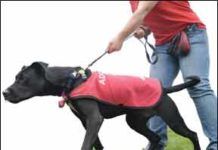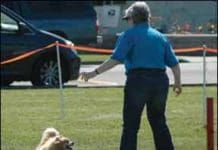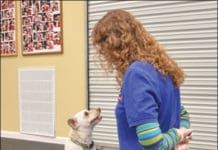A Bond-Based Approach to Dog Training
There is a lot of food for thought in this book. There is much that I find intriguing and would like to pursue, and also much that I disagree with. Arnold criticizes modern trainers for their focus on operant conditioning without acknowledging the great interest force-free trainers have already demonstrated in regard to the concepts of empowerment, choice, and cognition in their training programs. She insists that dogs really are eager to please" their humans an idea I have long argued against. She hasn't convinced me on that topic
How Much Training Does Your Dog Really Need?
Teaching a dog new behaviors can be lots of fun, and there are tons of people and dogs who thoroughly enjoy daily training and engaging in various canine sports or activities. However, it's equally important to give yourself permission to take the pressure off of yourself and your dog if training doesn't go so smoothly. By taking time to get to know your dog's personality, you will come to realize that your dog has a lot of strengths. We can spend so much time focusing on what is wrong with a dog, that we stop noticing what is right.
Eye Contact in Dog Training
It's really not natural for dogs to offer direct and prolonged eye contact. In the dog world, direct eye contact is a threat, and the appropriate response to a direct stare is to look away as a deference or appeasement behavior (I'm not challenging you/please don't hurt me!"). In many human cultures
Debunking the Dog’s “Guilty Look” Myth
I just talked to a potential client who is interested in bringing his 7-month-old Golden Doodle to train with us at AutumnGold. His dog, Penny, has the usual young dog issues - jumping up, a bit of nipping during play, still the occasional slip in house training, etc. Penny also raids the kitchen garbage bin, removing and shredding food wrappers, napkins, and any other paper goodies that she can find. The owner tells me that he is particularly upset about this last behavior because he is certain that Penny knows she has done wrong". He knows this because . . . wait for it . . . "Penny always looks guilty when he confronts her after the dreaded act."""
The ABCs of Training
We have Edward Thorndike (1874 - 1949) to thank for teaching us about The Law of Effect. While studying behaviorism, he observed and described The Law of Effect, which states that behaviors change as a result of the consequences to actions. Boundless.com has a nice succinct explanation of The Law of Effect:
Training Tiny Dogs
however.üMany small dogs reflexively resist being picked up
Beware of the Poisoned Dog Cue
A cue becomes “poisoned” when the dog’s association with the cue is ambiguous – it’s sometimes associated with positive reinforcement, and sometimes associated with punishment. When the association is ambiguous, the dog becomes confused and doesn’t know what to expect. Poisoning your “Come!” cue is the best way to ensure that she’ll stop and weigh her choices, then take off after the bounding deer, rather than come galloping to you when you call.
Debunking the “Alpha Dog” Theory
so he's trying it again.üIs this dog dominant or acting like an "alpha dog"? No; he's been trained to jump up and bite on cue."
Frustrated With How Your Dog’s Training is Going?
an obedience class
The Importance of a Dog’s Name with Regards to Training
There's a new dog coming into your life who needs to learn her name. A puppy perhaps? Or maybe an adult rescue do-over" dog? You might even have a dog who's been with you for a while
Using Your Dog’s Bowl As a Training Tool
You may think feeding your dog is a simple matter of dumping food in his bowl and plopping it down on the floor in front of him. You may be wrong. Mealtime is fraught with significance for your dog, and loaded with opportunities for you to influence his health and his behavior. Failure to take advantage of these could actually contribute to the development and/or escalation of problems that might otherwise be averted. A few deliberate decisions and choices on your part can go far in creating harmony in your home.
Training Small Dog Breeds
There’s a reality show that airs on TLC called Little People, Big World that chronicles the daily lives of the Roloffs, an Oregon family made up of both small (both parents are under 4 feet tall) and average-sized people. The series tastefully portrays how every day activities and seemingly uneventful situations can affect the family members differently based on their size and how society views them. Most importantly, it successfully shows that size does matter, particularly in a society built for the average-sized person. I just wish there was a show, or at least an effective way to get that point across regarding small dogs. They and their owners have long been misjudged and misunderstood.






